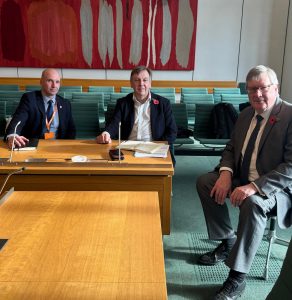The BBC licence fee is still the best option — for now.
This year the BBC celebrates its centenary. With the majority of its funding from a compulsory TV licence, the corporation has grown steadily so that it is now a £5 billion organisation employing 22,000 people and broadcasting eight national TV channels, more than 50 radio stations and with the second most visited website in the world. Many, including myself, believe that it is still the finest broadcaster in the world.
In justifying the licence fee, the BBC has always maintained a policy of ensuring that it offers something for everybody and, as a result, it has been able to claim that almost every adult in the UK uses BBC services each month.
However, in the last few years, the huge increase in choice of TV content resulting from the arrival of streaming services like Netflix, Amazon and Disney+, as well as the growth of online platforms such as YouTube and TikTok, has put that claim in doubt.
An increasing number of viewers are stating that they no longer watch live TV on a traditional receiver nor use the BBC. One result of this is that the number of TV licences purchased fell last year by 700,000, a loss to the BBC of more than £100 million. That trend is almost bound to continue as competition increases from international broadcasters whose spend on TV content far outstrips that of the BBC.
The current charter, which I negotiated with the BBC, guarantees that licence fee funding will continue until 2027. Although it may not be popular, we agreed that no viable alternative existed. However, going forward, public support for it depends on the BBC continuing to convince people that they personally benefit from its services provided, and this is likely to become steadily harder to do.
Despite the explosion of choice from competing broadcasters and platforms, I believe that the need for public service broadcasting, and at its heart the BBC, is as great as ever. It is to ensure the long-term future of the BBC that the debate about how best to fund it needs to begin now.
The arguments against some of the alternative funding methods have not changed. To introduce advertising on the BBC would force it to become more populist and would undermine other commercial public service broadcasters such as ITV, Channel 4 and Channel 5.
To replace the licence fee with funding from general taxation would lead to an annual argument between the BBC and the Treasury, weakening its independence and doing little to lessen the resentment of taxpayers.
Many people have suggested that the best alternative would be at least a partial subscription model. Core public services such as BBC Radio, news and current affairs and the World Service could be funded from either the Treasury or from a much reduced licence fee. Other TV and online content would be accessed through a voluntary subscription in the same way as Netflix, Amazon and the BBC’s own Britbox.
However, these on-demand services are only available via the internet and require a superfast broadband connection. It is not possible to offer subscription services through terrestrial transmission to a TV aerial as there is no facility to opt not to receive them.
With the steady growth of broadband, there will come a time when it will become possible to switch off Freeview and use the spectrum released for other purposes. All TV will be distributed through the internet — at which point subscription becomes a viable option.
However, we are still some way off that point. There are still nearly eight million adults in the UK who only have access to free-to-air TV. The government can rightly take credit for the fact that superfast broadband is now available to 95 per cent of homes. But availability is not the same as take-up, and there are many who cannot afford, or do not wish, to pay for additional TV content or even a broadband service.
That figure should diminish as coverage increases and prices fall. However, no government could contemplate removing free-to-air TV until it is close enough to zero. It is right that the debate about future funding should start now, but it may be that the licence fee remains the least bad model for some time to come.


